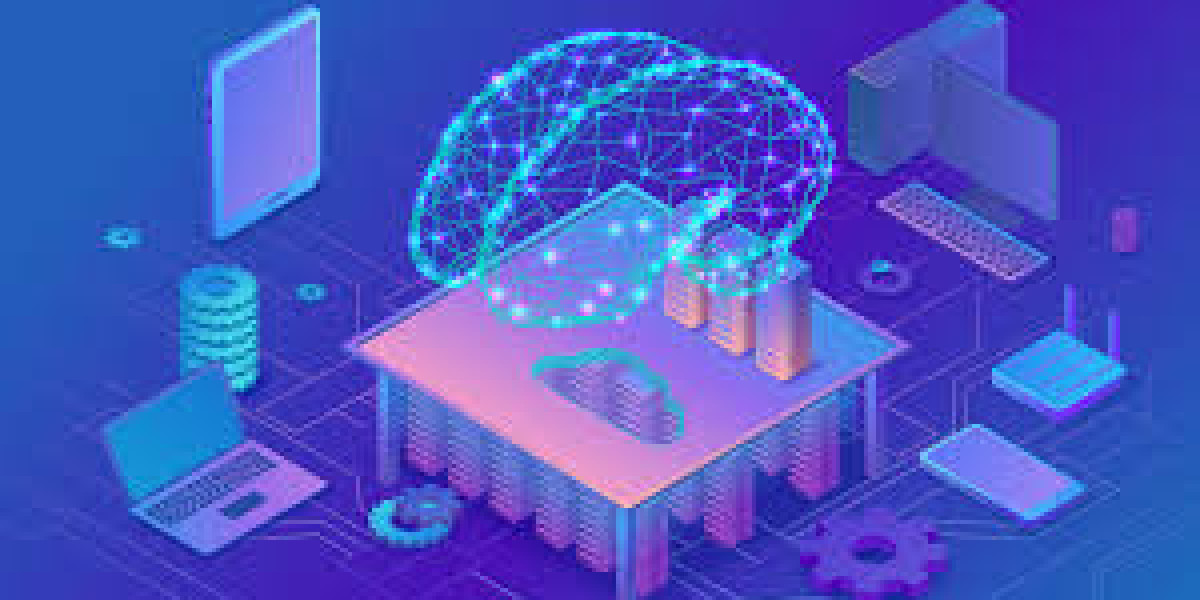Exhibitions Are Evolving With Machine Learning Development Services
Introduction:
Software development services New York are helping reshape the global exhibitions industry through the power of machine learning. What was once a physical-only, static event experience is now transforming into a dynamic, data-driven environment where personalization, automation, and intelligent engagement define success.
Machine Learning Development Services are now essential for organizers and exhibitors who want to meet evolving attendee expectations, unlock new revenue channels, and deliver immersive experiences at scale. In this post, we explore how ML is fueling this transformation—and what the future of trade shows and exhibitions looks like in an AI-first world.
Why the Exhibition Industry Is Adopting ML Rapidly:
Software development services New York are supporting organizers across industries—real estate, manufacturing, fashion, healthtech, and entertainment—by integrating ML into their exhibition strategies. The reason? AI is no longer just a backend utility; it’s central to audience engagement, predictive analytics, and on-site behavior modeling.
As user expectations rise, exhibitions must:
Deliver value before the attendee even arrives
Recommend the right connections
Predict popular sessions and streamline logistics
Track engagement to demonstrate ROI to exhibitors and sponsors
Deloitte’s 2024 Event Tech Survey revealed that 72% of trade show organizers planned to expand AI and ML usage to optimize matchmaking, hybrid infrastructure, and user experience. That trend is growing.
Key Use Cases: ML Transforming Every Stage of the Exhibition Lifecycle
1. Smart Registration and Personalized Agendas
From the moment someone registers, ML begins analyzing their:
Industry, company size, job title
Historical attendance
Clickstream activity on the event website
The result: suggested tracks, custom agendas, and prioritized networking matches before the event begins. These micro-personalizations drive greater satisfaction and conversion.
2. AI-Powered Matchmaking at Scale
Machine Learning Development Services are driving smart networking by:
Analyzing attendee profiles for complementary goals
Suggesting high-value exhibitor/attendee connections
Optimizing scheduling to avoid missed opportunities
Platforms like Brella and Grip use ML to power such functionality, while custom event software created by software development services New York ensures branding, logic, and compliance are tailored.
3. Behavioral Heatmaps and Engagement Forecasting
Using ML applied to location tracking, camera feeds, badge scans, and app usage, organizers gain:
Heatmaps of high-traffic booth areas
Session popularity predictions
Real-time alerts on bottlenecks or underperforming zones
Exhibitors use these insights to adjust messaging, reposition displays, or increase staffing dynamically.
4. Predictive Lead Scoring and CRM Integration
ML doesn’t stop at traffic—it tracks intent. By observing behavior like:
Dwell time at a booth
Specific questions asked
Mobile interactions
ML systems can qualify leads before a sales rep even speaks to them. CRM integration means leads scored as “hot” are followed up instantly via email or chat.
5. Sentiment Analysis on Feedback and Social Channels
Using natural language processing, ML models can:
Analyze attendee survey responses
Track public sentiment from social media mentions
Identify key themes and satisfaction trends across event stages
This provides organizers a clear understanding of what worked, what didn’t, and how to iterate for future events.
Virtual and Hybrid Events: ML Bridges Online and Onsite Worlds
The post-COVID exhibition model is hybrid. That means any solution must support:
Virtual Q&A, polls, and real-time chat moderation
Personalized virtual content feeds
Attendee location detection for adaptive content
Software development services New York are ensuring that both remote and in-person attendees enjoy unified experiences powered by machine learning.
For example, attendees who attend virtually receive:
Suggested sessions based on watching history
Follow-up content powered by NLP summarization
Smart exhibitor booths with AI-powered demos and chat
Onsite participants benefit from:
Interactive floor maps with real-time suggestions
Push notifications based on physical movement
Smart appointment reminders and venue navigation assistance
Exhibitors Are Seeing Greater ROI With AI Integration:
Exhibitors who integrate ML into their approach report:
2.5x increase in booth engagement (McKinsey, 2024)
33% more qualified leads captured (Bizzabo Study)
40% higher post-show lead conversion from predictive scoring
With software development services New York, exhibitors can build smart booth infrastructure such as:
Touchless kiosks using facial recognition
Personalized demos triggered by attendee tags
Chatbots that qualify leads before a rep engages
Additionally, companies that hire offshore developers to scale their AI modules can reduce development timelines while retaining local oversight.
Security, Compliance and AI Ethics in Exhibitions:
Any ML implementation in exhibitions must also:
Respect data privacy regulations (GDPR, CCPA)
Offer opt-in experiences for behavioral tracking
Avoid biased recommendation engines
A Software Development Company New York ensures robust design reviews, ethical model training, and security audits, especially in sensitive sectors like healthcare, legal, or government expos.
Future Outlook: AI Assistants and Real-Time Orchestration
By 2026, we’ll see ML models powering:
Voice-controlled event assistants for attendees
Fully dynamic booth layouts based on attendee interests
Real-time orchestration of venue environments (lighting, A/V, crowd flow)
Think of ML not just as analytics, but as a real-time event decision engine. Organizers that invest now in Machine Learning Development Services will stay ahead of that curve.
Final Thoughts
Machine Learning Development Services are not just transforming exhibitions—they’re rebuilding them from the ground up. From personalized onboarding to smart matchmaking, adaptive sessions, and predictive analytics, ML has become the nervous system of the modern expo.
Trade shows aren’t just going digital. They’re becoming intelligent. The organizers and exhibitors who embrace this now will lead the industry in engagement, growth, and innovation for years to come.
FAQs:
1. What are Machine Learning Development Services in the context of exhibitions?
Machine Learning Development Services involve designing and implementing ML algorithms that help exhibitions automate processes like attendee matchmaking, behavior tracking, personalized scheduling, lead scoring, and post-event analytics. These services are often integrated into custom software platforms built by experienced development teams.
2. How does machine learning improve attendee experience at expos?
ML improves attendee experience by delivering:
Personalized agendas and content recommendations
Smart networking suggestions based on behavior and goals
Real-time support via AI chat or virtual assistants
Enhanced navigation and notifications for on-site sessions or booths
This makes large-scale events feel highly customized for each individual.
3. Can small or medium-sized trade shows afford ML integration?
Yes. While enterprise-grade events may use complex AI infrastructure, smaller shows often work with development teams that hire offshore developers to build lean, modular systems. These teams reduce cost without sacrificing customization or data security.
4. What are the security and compliance risks with using ML at exhibitions?
Using ML means handling attendee data, which comes with risks. However, trusted software development services New York ensure GDPR, CCPA, and SOC 2 compliance. Ethical AI practices such as explainability, consent management, and anonymized tracking are also key.
5. How do Machine Learning Development Services benefit exhibitors?
ML helps exhibitors:
Score and prioritize leads in real-time
Adjust content and demos dynamically
Engage visitors with personalized AI interactions
Track booth ROI and conversion metrics via predictive analytics
This makes it easier to focus resources on prospects who are more likely to convert.
6. Is machine learning useful after the event ends?
Absolutely. Post-event ML applications include:
Analyzing feedback and sentiment from surveys or social media
Predicting which leads are most likely to convert
Segmenting audiences for follow-up
Informing decisions for future event improvements
7. What’s the first step to integrating ML into an event?
Begin with a discovery session with a Software Development Company New York. They will assess your event structure, attendee expectations, data sources, and integration needs—then recommend ML solutions aligned to your goals.










